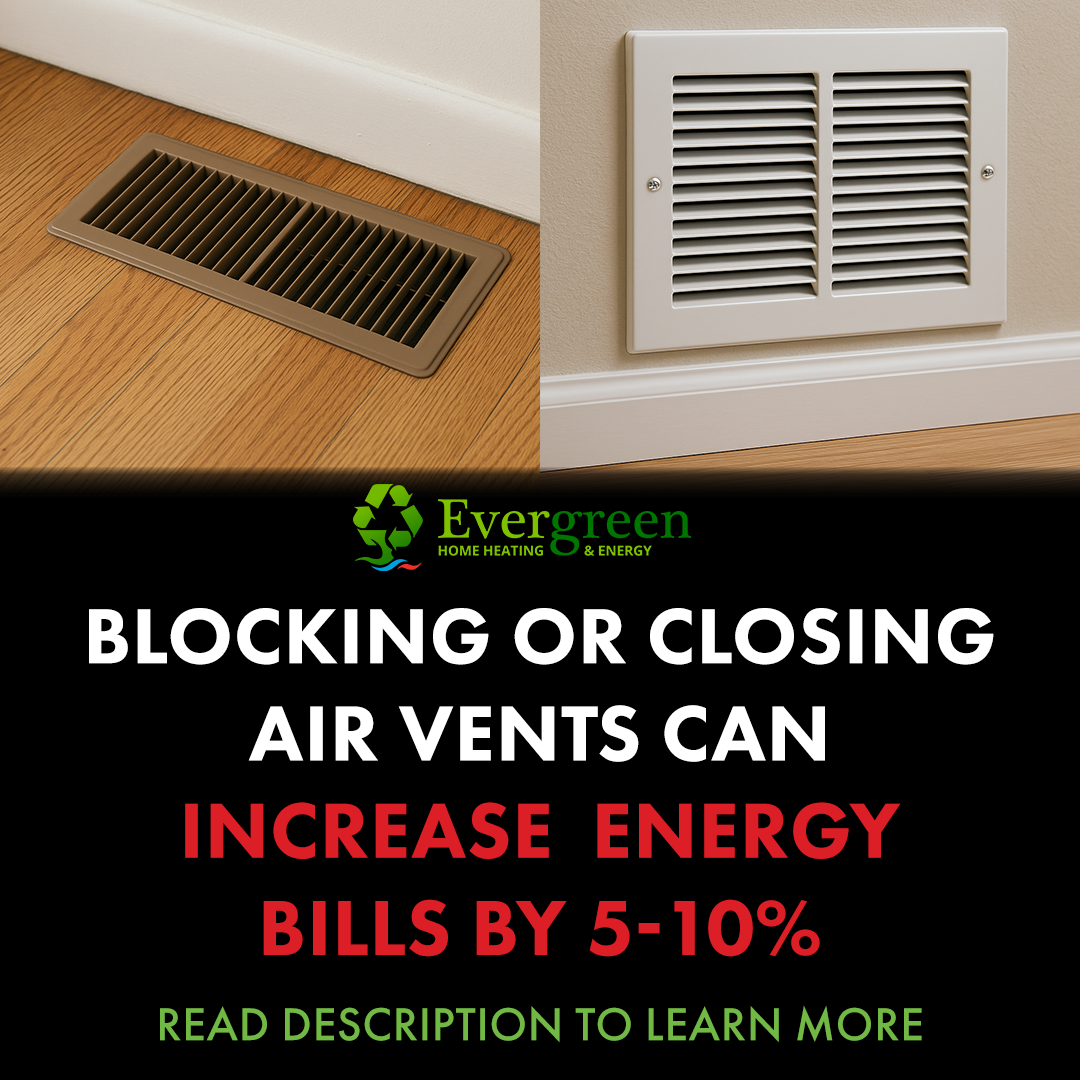Service Areas & Cities
Here Are The Areas We Serve In The King County Region
Gas vs. Electric Heating, Which Is Better For the Environment?

As human technology continues its upward climb, our thirst for energy grows. Unfortunately, the non-renewable sources of energy we use to drive our technology continue to damage our planet. To combat this, scientists are actively looking for less environmentally harmful energy sources, with the eventual goal of 100% renewable energy. In the meantime, we should all do what we can to reduce our carbon footprint.
All of us live in homes that require heating. Because we don’t yet have viable means of generating all our power with renewable sources, heating our homes has a negative environmental impact. One way to reduce our carbon footprint is to reduce the amount of damage that heating our homes does to the environment. What type of heating fuel and equipment should we use in our homes?
The two most-used fuel sources for home heating are natural gas and electricity. We’ll examine both options in detail and try to come to some conclusions.
The Case for Electric Heating
When it comes to the process of converting a fuel source to heat energy, it doesn’t get any cleaner than electricity. The actual conversion process doesn’t typically give off any harmful greenhouse gasses or environmentally hazardous byproducts. Most other fuel sources are harmful to the environment in some way when being converted to heat energy.
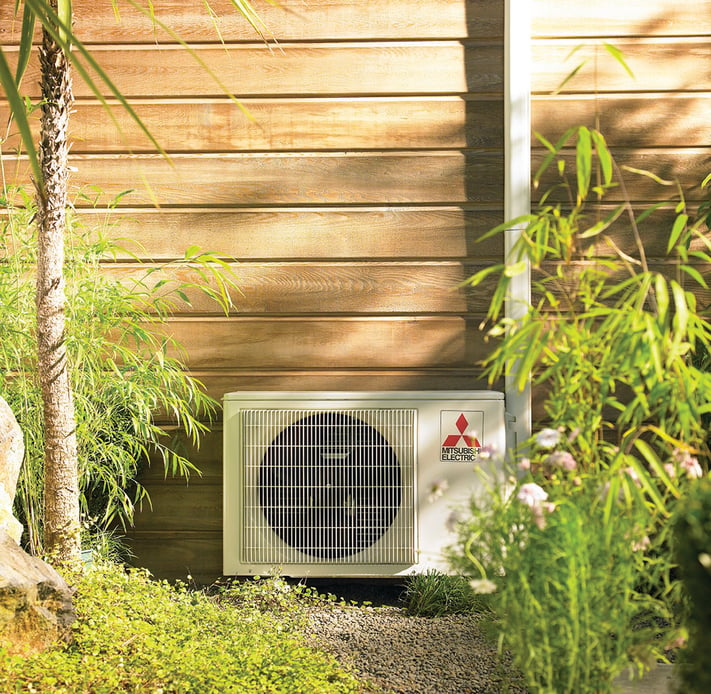 As the world moves to more “renewable” electricity generation, homes with electric heating will be able to take advantage. If/when we’re able to generate electricity with only renewable sources, all-electric homes will have a very small relative carbon footprint. As an added advantage for electricity, virtually every home already has electrical service, meaning that once “renewable” electricity is available, the costs to convert homes to electric heating will be reduced because the fuel source will already be present in the home.
As the world moves to more “renewable” electricity generation, homes with electric heating will be able to take advantage. If/when we’re able to generate electricity with only renewable sources, all-electric homes will have a very small relative carbon footprint. As an added advantage for electricity, virtually every home already has electrical service, meaning that once “renewable” electricity is available, the costs to convert homes to electric heating will be reduced because the fuel source will already be present in the home.
Another nice fact about electricity is that it can be used as the fuel source for both heating and air conditioning. Heat pumps, which run on electricity, provide both heating and cooling, all in the same piece of equipment! No other fuel source can provide this, since all air conditioners run on electricity.
Many people think of electric heating as expensive and inefficient, however, there are currently some highly efficient options. Current high efficiency heat pump models are some of the most efficient and cost-effective ways to heat a home, making a very strong case for the use of electricity in home heating.
The Case Against Electric Heating
According to the U.S. Energy Information Administration, in 2015, about 67% of electricity generation in the United States came from plants converting fossil fuels to electricity. This includes coal, natural gas, and petroleum. 33% came from coal alone. According to Green Peace, coal is the most polluting of all fossil fuels when factoring in both the mining and combustion process.
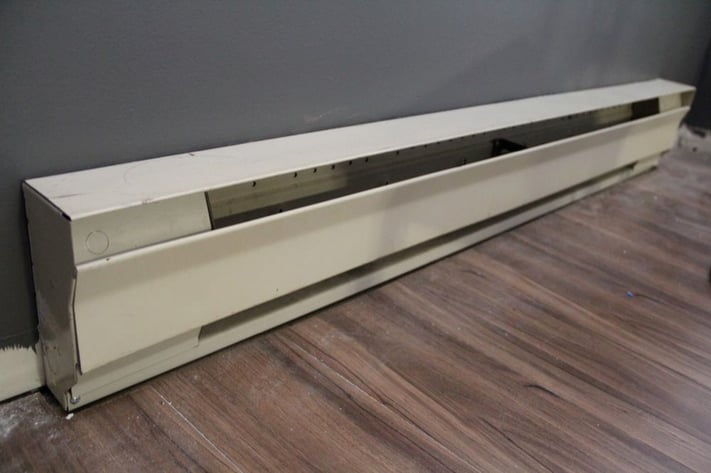 Before researching this article, I expected the electricity here in the northwest to come mainly from nuclear and hydro-electric generation. However, that is not the case. 35% of Puget Sound Energy’s electricity was generated by burning coal in 2015, and another 24% came from natural gas, meaning at least 59% of PSE’s electricity came from fossil fuels. For Seattle residents, the fuel mix looks a lot better regarding fossil fuels. In 2014, less than 2% of Seattle City Light’s electricity came from fossil fuels. The vast majority came from hydro generation. Hydro does not require the combustion of fossil fuels, so from an emissions standpoint it is much better for the environment. However, hydro is not considered a renewable energy source as it comes with its own environmental costs. Dams can physically damage fish and hamper their migration and reproduction. Dams also cause large scale changes in the habitat surrounding the dammed river.
Before researching this article, I expected the electricity here in the northwest to come mainly from nuclear and hydro-electric generation. However, that is not the case. 35% of Puget Sound Energy’s electricity was generated by burning coal in 2015, and another 24% came from natural gas, meaning at least 59% of PSE’s electricity came from fossil fuels. For Seattle residents, the fuel mix looks a lot better regarding fossil fuels. In 2014, less than 2% of Seattle City Light’s electricity came from fossil fuels. The vast majority came from hydro generation. Hydro does not require the combustion of fossil fuels, so from an emissions standpoint it is much better for the environment. However, hydro is not considered a renewable energy source as it comes with its own environmental costs. Dams can physically damage fish and hamper their migration and reproduction. Dams also cause large scale changes in the habitat surrounding the dammed river.
Utility cost is also a concern for some types of electric heating appliances. Many homes in Washington state that use electricity for heating have “electric resistance” heating equipment. This includes electric furnaces, electric wall heaters, electric space heaters, and electric baseboard heating (for more info on electric resistance heating see https://en.wikipedia.org/wiki/Electric_heating ).According to Seattle City Light, in 2015 electric resistance was the most expensive heating fuel source, topping even central oil furnaces in utility costs. Electric resistance equipment uses twice as much or more of electricity than high efficiency heat pumps to generate the same amount of heat. With so many homes using severely inefficient electric resistance heating, and the use of fossil fuels to generate that electricity, the environmental cost of electricity grows very large! Luckily, many homeowners are making the switch to more efficient heating equipment, including heat pumps, which greatly reduces their environmental impact.
Unfortunately, heat pumps also have an environmental cost, however small. Like any product, the heat pump manufacturing process creates some harmful emissions. Heat pumps also use refrigerant, which is harmful to the environment if leaked. In spite of these issues, however, switching to a heat pump is currently one of the best ways to reduce your carbon footprint without giving up heat in your home altogether! As an added benefit, all heat pumps provide air conditioning as well as heating.
The Case for Natural Gas
One of the major drawbacks of switching from one heating fuel to another in a home is the conversion cost. In order to switch a home from a different fuel source to gas, the gas utility (Puget Sound Energy here in the Seattle area) has to first provide gas service to the home. This has a wide range of cost, anywhere from free to thousands of dollars. Once the gas service is in place, gas then needs to be piped from the gas meter to the furnace location inside the home, which adds further cost. Luckily, many homes in Washington state already have gas service. In 2012, NEEA estimated that 48% of Washington homes have gas. For those homes that already have it, gas is a great option.
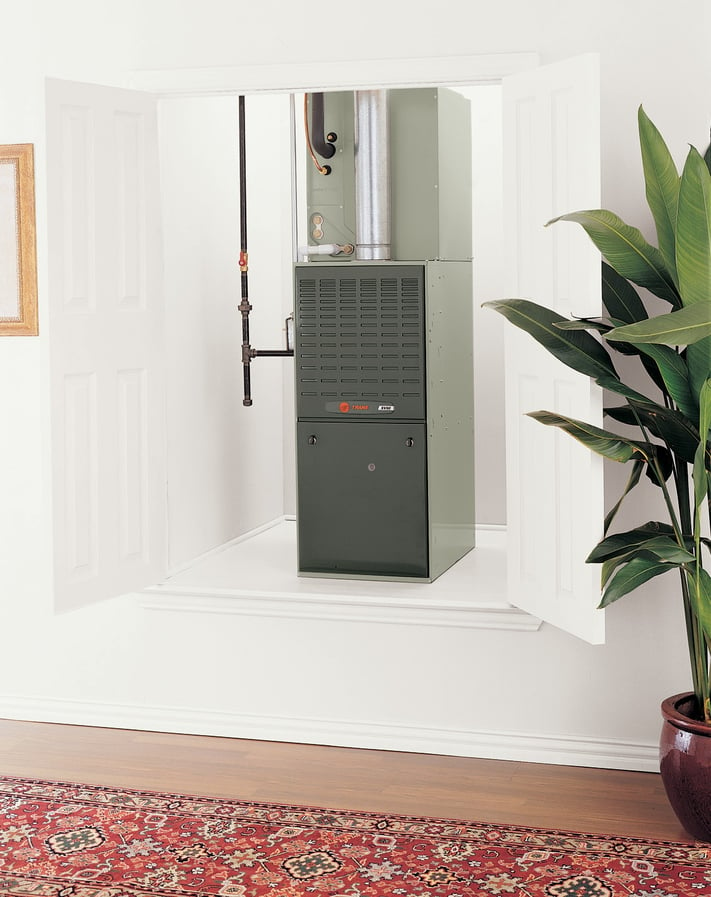 Natural gas is one of the cleanest-burning fossil fuels available, making it a relatively good option as a fuel source when comparing it to other fossil fuels, like heating oil. If fossil fuels are your home’s only option, natural gas is probably the best one to use for heating.
Natural gas is one of the cleanest-burning fossil fuels available, making it a relatively good option as a fuel source when comparing it to other fossil fuels, like heating oil. If fossil fuels are your home’s only option, natural gas is probably the best one to use for heating.
When compared against electric resistance equipment, natural gas furnaces are a clear winner. The financial cost of heating a home with a natural gas furnace is much lower than an electric resistance furnace. Even the lowest efficiency gas furnace you can buy (80% FUE) costs much less to operate than the most efficient electric furnace you can buy. Considering how a substantial portion of our electricity is generated from “dirty” sources, natural gas is also currently better for the environment than electric resistance heating.
Another nice aspect of natural gas is that we have a lot of supply left. Because of this, natural gas might make a good choice as a stepping stone between where we are now and the end-goal of 100% renewable electricity generation. We have enough natural gas supply to last us decades as a society yet, giving us time to develop better and better sources of renewable energy.
The Case Against Natural Gas
Natural gas consists of mainly methane and other hydrocarbons. It is formed naturally underground when the remains of plant and animal matter are exposed to heavy pressures under the Earth’s surface. Because it occurs naturally under the Earth’s surface, it must be extracted. During the extraction process, much of the gas is lost to the atmosphere. Methane is a greenhouse gas, meaning it has a negative effect on our environment through global warming. In fact, a 2015 report by the Environmental Defense Fund surmises that natural gas released during the extraction process may negate much of its clean-burning benefit over other fossil fuels. See this Guardian article for more info.
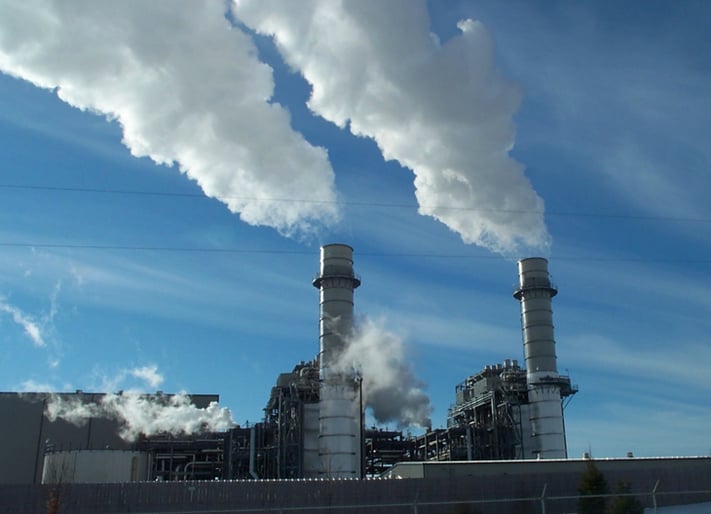 One of the newer methods of natural gas extraction, fracking, negatively impacts the environment in several ways. Fracking, also known as hydraulic fracturing, is the process of injecting liquid at high pressure into rocks and holes under the earth to force open existing fissures in rock and extract the natural gas contained within. Like other extraction methods, some of the methane gas is released, furthering global warming and harming the atmosphere. One possible major issue with fracking is the pollution of groundwater. There have been many studies into this possibility, with varying results. In fact, the New York Times reported radiation present in hydraulic fracturing wastewater released into rivers in Pennsylvania.
One of the newer methods of natural gas extraction, fracking, negatively impacts the environment in several ways. Fracking, also known as hydraulic fracturing, is the process of injecting liquid at high pressure into rocks and holes under the earth to force open existing fissures in rock and extract the natural gas contained within. Like other extraction methods, some of the methane gas is released, furthering global warming and harming the atmosphere. One possible major issue with fracking is the pollution of groundwater. There have been many studies into this possibility, with varying results. In fact, the New York Times reported radiation present in hydraulic fracturing wastewater released into rivers in Pennsylvania.
The transportation of natural gas also carries an environmental impact. Much of the natural gas extracted in the United States and elsewhere is transported through pipelines that crisscross the country. These pipelines carry their own negative environmental impacts. As stated above, natural gas leakage is a bad thing for the environment. Steve Hamburg, the Environmental Defense Fund’s chief scientist, estimates that 2 to 2.5% of the gas in America’s pipelines leaks into the environment. Pipelines also cause natural habitat loss and fragmentation, which affect species movement and migration and for certain species can limit reproduction to smaller, isolated groups. Natural gas is also transported by trucks and rail, which of course burn fossil fuels.
Aside from the environmental impact, there are also safety concerns with natural gas appliances in the home. The burning of natural gas creates carbon monoxide gas, which is clear and odorless, and deadly when breathed in high enough quantities. As long as they are functioning properly, gas furnaces are perfectly safe to have in a home. However, if a gas furnace is improperly maintained and not checked periodically by a professional technician (we recommend at least once per year), it can malfunction and exhaust carbon monoxide into the home, with potentially deadly consequences. Municipalities across the country have adopted strict safety regulations to keep this from happening, including requiring the installation of working carbon monoxide alarms in homes with gas appliances. It’s extremely important to follow these safety regulations and recommendations if you have a gas furnace. The number of instances of death due to a furnace malfunction are quite low in the United States. Between 1999 and 2010, a total of 5,149 unintentional carbon monoxide poisoning deaths occurred in the US, or an average of 430 per year, a low figure compared to the 300 plus million population of the US.
Natural gas is often considered to be a good stepping stone between more harmful fossil fuels such as oil and petroleum, and the eventual move to sustainable, renewable sources. One school of thought, as detailed by Christina Nunez in National Geographic, is that the large remaining supply and newer extraction techniques may actually be a big problem. In fact, according to this view, the large supply of natural gas may delay the move to renewable fuel sources by decades, to the ultimate detriment of the environment. Nunez surmises that we might be forced to develop renewable energy much earlier if natural gas was not an option, in spite of the fact that natural gas is much cleaner than other fossil fuels currently used.
Conclusions
Because of the heavy usage of dirty fossil fuels in electricity generation, there’s not a lot of difference between using natural gas and electricity for home heating in terms of environmental impact. The important thing, not only for the environment, but for your own bank account as well, is to increase your own home’s heating efficiency as much as possible. Whether you’re using natural gas or electric heating, there are a lot of ways to get more efficient. This includes upgrading to high efficiency equipment as well as making sure your home is insulated as tightly as possible and purchasing good windows and doors. Until our society moves to more renewable energy sources, the best way you can help as an individual is to use as little energy as possible!
.jpg?t=1507328157284&width=711&height=464&name=livingroom+copy_Copy(2).jpg)

